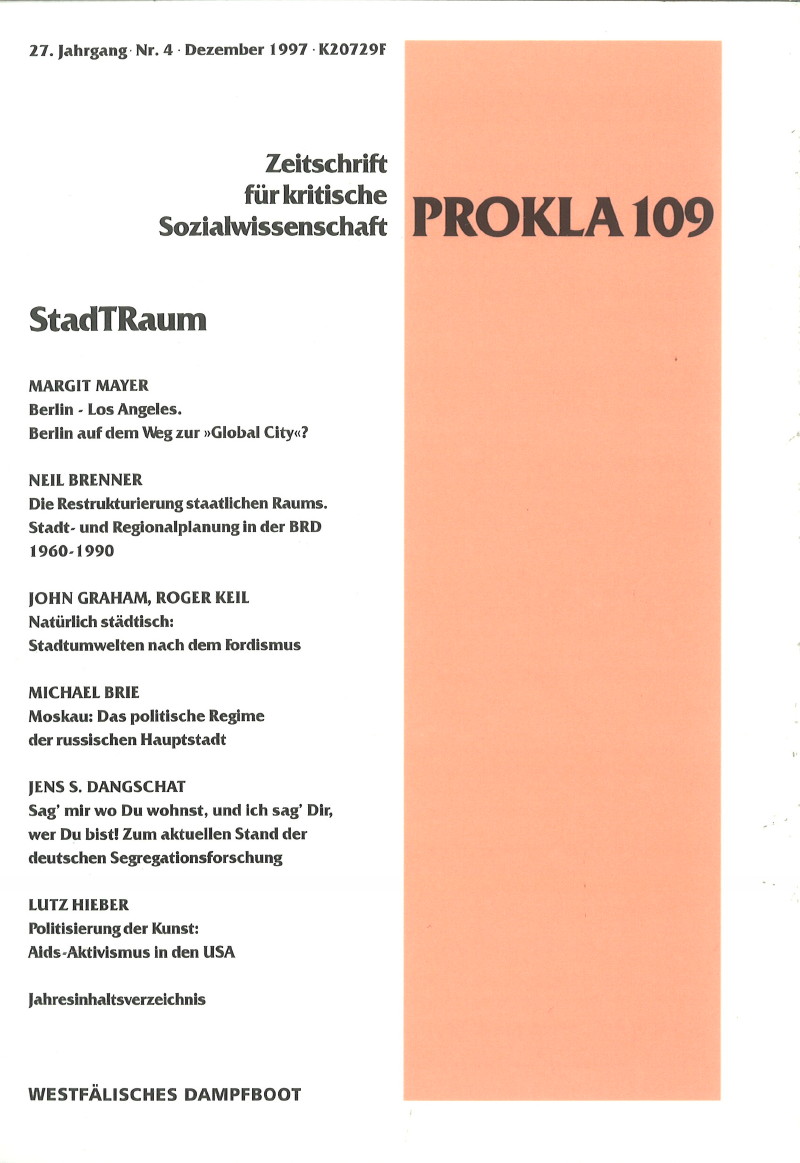Moskau: Das politische Regime der russischen Hauptstadt
DOI:
https://doi.org/10.32387/prokla.v27i109.865Keywords:
Moskau, Russland, Stadtpolitik, Privatisierung, Regime, WirtschaftspolitikAbstract
The analyses of the post-Soviet political transformation are dominated by a comparison of the actual processes occurring in the East European countries with highly normative and often ahistorical models of democracy. Specific historical legacies, incompetent or pro-Communist actors, and the lack of sufficient help from the West were made responsible for the observed deviations from the ideal. The concept used in this paper is that of a realistic model of urban machines as a specific local political regime which can be found under very divergent circumstances of rapid social change. lt is a regime where a political organization under conditions ofuniversal (at least male) suffrage is able to control the 'input' and 'output' dimensions of a local political system over a longer period of time. Its most important feature is a system of mass patronage which is the key instrument used in forming a winning coalition. This concept is applied to post-Soviel Moscow, analyzing the institutional and cultural environment and the political and economic formations.






